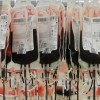Analysing the UK's obesity strategy
Interview with
This week, there were stark warnings from Boris Johnson that the world faces a second wave of Covid cases: Germany had Spain have seen big increases in cases; Melbourne has declared a curfew, and parts of England are seeing new control measures introduced. And perhaps with this in mind, the UK government unveiled plans to confront one of the big risk factors for severe coronavirus disease, and that's obesity. The Department of Health have published a policy document setting out a strategy to tackle the growing problem. Dolly Theis is a public health researcher at the University of Cambridge. She looks at the effectiveness of policies like this. Chris asked her what she made of the measures...
Dolly - So the government have brought in a new obesity strategy, a number of recommendations, including a better health, public information campaign designed to encourage people to lose weight. They're also expanding services locally to help with people who are already living with obesity, and then a whole range of other measures that help make the environment a healthier place for people, to make it easier to live a healthier life.
Chris - They don't hold back on their punches because right at the top of this report, they point out look, 63% of adults in our country are overweight. That's a pretty big number. And then even more damning, they go on to say, well, a third of children leave primary school overweight. And a fifth of those are already obese. These are kids who are not even into their teenage years yet.
Dolly - Yeah. I mean, as you say, the numbers speak for themselves. Sadly, we've known about this for a long time, but it's very difficult, because it's such a complex area, to know what can be done. And we often hear people say, there's no silver bullet i.e. there's no one thing that will be brought in that can help tackle this issue. So it requires a multi-action approach, which is exactly what this obesity strategy is clearly trying to do. We need these policies, not just to be proposed, but they need to be followed up. They need to be implemented and acted upon and evaluated. You know, are they actually going to work? We can only find that out if we evaluate them.
Chris - But Dolly, when I went to school, I know for a fact that a fifth of the kids in my class were not obese. I can't actually think of a single child in my class that was, so why are we in a situation now where we have got young children going to school, and they're already overweight before they've even set foot in the school gates?
Dolly - Yep. You're absolutely bang on with that. And this is something that a lot of people are trying to study. What we understand to have changed is that we do all want to still be fit and well, but it's not always easy, in the world that we live in. This obesity strategy is trying to tackle the bombardment of junk food advertising. We know that companies spend much more on junk food advertising than they do on healthier advertising.
And so they're bringing in, looking to bring in a ban of junk food advertising before 9:00 PM on TV and online. It's also very confusing, the information available to us, you know, we're told we should be losing weight, for example, by an information campaign. But at the same time, our high streets are often littered with takeaways. It's not always easier to cycle for example, than it is to drive. It is not easy in the current environment for everyone to live a healthy life. And sometimes it can be confusing, trying to navigate, what is a kind of healthy life versus unhealthy options.
Chris - Let's just look through some of the things that the government have earmarked that are part and parcel of their campaign. Lots of the interventions that are more carrot than stick for instance, they've got a traffic light system on foodstuffs to encourage people to make more healthy choices, labeling up food with calories. Well, that's not new. We've been doing that for a long time. Adding the number of calories there are in alcohol cause people often don't appreciate that. Fair enough. That would be a new intervention, but this is very much, again, the onus is on a person to see that information, take it on board and then act on it. Do you think that's actually gonna work?
Dolly - Oh, well, you nailed it. What you're talking about is, the kind of intervention differences that require an individual to use their own resources. So they need to engage, as you say, with the information. They need to want to turn it into action and do that over a long period of time. Whereas the interventions like the banning of junk food adverts, this takes away those adverts for people so that you're not having to make that choice. Actually, on the menu labeling front. This is a very interesting intervention, because it's proposed in a way, that it's a consumer tool i.e If you put information on a menu in a restaurant, then people going there will be better informed about the nutrient contents of the food.
Actually, the evidence on how effective that is, is mixed. What we found in a study that me and a colleague published last year is that having labeling, actually is associated with healthier food served. Maybe it's the restaurants that have labeling have healthier foods. So they're more likely to be okay with having the information on there, or it might be that because they've introduced labeling, and know what's in their food, they've then improved the healthfulness of it. So actually this kind of intervention could be seen, rather than being seen as a tool for consumers to better understand the choices that they're making. It could be seen as an information tool for the restaurants to know what's in their own food so that they can then make it healthier or provide different, healthier alternatives alongside other less healthy alternatives.
Chris - So you're a bit lukewarm on some of that, then. Some of it, you can see a benefit, but some of it very much the onus is being pushed very much onto the consumer. What do you think then about the proposed legislation to limit things like buy one, get one free deals, where the buy one get one free is for something that's really bad for you. Limit the ability of supermarkets to sort of force feed us bad stuff, that's high in fat, high in sugar, high in salt, et cetera.
Dolly - Yeah. So again, it comes back down to re-balancing things so that it's just easier to be healthier, and how that's done, these are all sort of, possible techniques to help achieve that re-balancing. So that it's just easier, so that people don't have to think too much about it regardless of where they live, regardless of the challenges that they face on a daily basis. So these sorts of techniques, we will basically have to introduce and evaluate to understand the true impact. And this is a critical part of what I'm looking forward to seeing hopefully more information about when it comes to this strategy, is it's only by introducing some of these higher level interventions, that we can actually start to build the evidence on them.
And actually there are some things that we just simply can't build the evidence on until they're introduced, a bit like the soft drinks industry levy, or the sugar tax as lots of people know. It's very hard to build evidence on the effect of a tax in a particular country without introducing the tax in the first place. So I very much hope that the evaluation side of this new strategy is taken very seriously and not retrofitted at a later stage. We really need to view introducing these measures as not only tackling the obesity issue, and the kind of food culture issue, but also helping build the evidence base on some of these interventions.










Comments
Add a comment